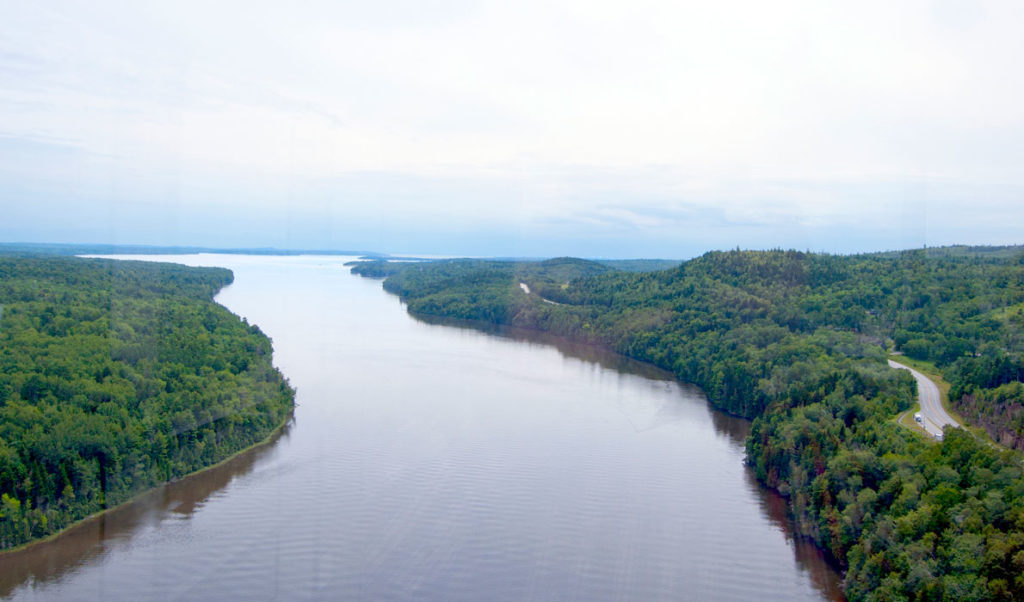As Maine’s largest river system, the Penobscot River carries a deep cultural and economic history of our region. The future health of this vast watershed will be discussed at the first Penobscot Watershed Conference, April 9, 8 a.m. to 5 p.m. at Point Lookout in Northport. The event begins Friday evening, April 8, at 6:30 p.m. with a free pre-conference film screening and panel discussion hosted by the Island Institute and other local and regional non-profit organizations.
The public is invited to join with scientists, researchers, business leaders, nonprofit organizations, fishermen and government representatives to discuss the past, present, and future state of the Penobscot watershed region—what needs to happen, what individuals might do, and recommendations for action. Pre-registration is encouraged for the one-day conference.
The conference features many perspectives on the state of the watershed. Speakers include Penobscot Nation Chief Kirk Francis, MacArthur Award-winning fisherman/scientist Ted Ames, and U.S. Congresswoman Chellie Pingree. Attendees will also be treated to perspectives from lobstermen, lake protectors and representatives from timber products companies, Maine Maritime Academy, and those in the recreation and food industries.
“We wanted to bring together concerned community members for a conversation about sustainable economic development in the region,” said Stephen Miller, executive director of Islesboro Islands Trust and chairman of the conference planning committee.
“The Penobscot River connects its inhabitants in many ways, physically, economically, socially, culturally, and in spirit. This conference is the first of its kind to bring together the entire watershed from its headwaters to the sea, to share ideas about how we can work together to protect, restore, and celebrate this great resource,” said John Banks, director of the Penobscot Indian Nation Department of Natural Resources and member of the conference planning committee.
University of Maine professor and marine biologist Robert Steneck will give a keynote presentation about Penobscot Bay. This will be followed by six concurrent workshops on the themes of maritime heritage and industry, watershed economy, indicators of environmental health, collaborations, recreation and tourism and environmental policy issues. The workshops feature presentations and panel discussions by more than 70 experts from the watershed and beyond.
On Friday, April 8, the Island Institute and members of the conference planning committee will show the film, The Great Bear Sea: Reflecting on the Past—Planning for the Future. A panel of local and international experts will follow the film to discuss how Mainers can get involved in the Northeast regional ocean planning process. Doors open at 6:30pm with free movie snacks and a cash bar, and the free program starts at 7 p.m.
For more information on the draft conference program, and to register, visit:
Conference site: http://seagrant.umaine.edu/penobscot-watershed-conference
and http://ocean-frontiers.org/gbs-northport/ for the film screening.





